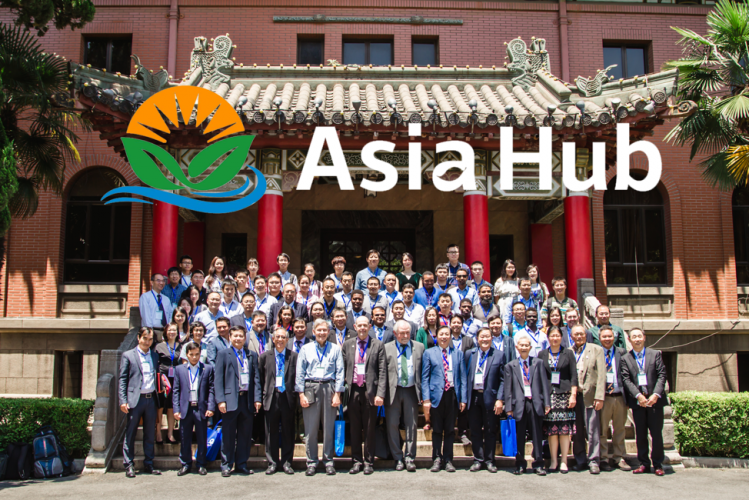
Asia Hub was initially formed to enable MSU's collective capacity to address complex global change issues and direct access to intellectual and funding resources in these regions, the Asia Hub was officially established in 2017 after a lot of brainstorming and international trips. In 2017, MSU and Nanjing Agricultural University (NAU), China established the "Asia Hub on Water, Energy, Food (WEF) and Agriculture." Eventually, the network shifted to be known simply as "Asia Hub." During the annual meeting in 2019, over 10 universities signed trilateral Memorandums of Understanding with MSU and NAU to become Asia Hub partner institutions. By 2023, Asia Hub has over 30 partnerships with universities in Asia, research institutions, and international organizations, forming a sizable international research network.WEF and agriculture remains an integral part of Asia Hub's focus, but the network has expanded to look into other themes, especially around climate resilience and international education.
In addition to the team based on East Lansing, Asia Hub has several nodes including an office and team in Sanya Yazhou Bay Science and Technology City, China, an office in Nanjing, China, a leadership team in Indonesia, and a leadership team in Thailand. Equally important are the various individual partner institutions across South, Southeast, Central, and East Asia as well as the Future Earth network. Asia Hub in Sanya, Hainan will undertake various activities including an International Project Office (IPO) for Future Earth and the Future Agroecosystems Research and Innovation (FARI) initiative. It plans to build a large-scale agroecological observation system, allowing for innovative research to provide information on WEF-Land system security which can be coupled with human ecology and future agroecosystems sustainability.
The Asia Hub network strengthens partnerships, expands connections, and integrates cross-disciplinary concepts and methodologies, with a goal of generating novel ideas, new collaborations, and impactful research. Because Asia Hub is all about connections, it regularly mixes things up and mingles ideas at workshops. These are not typical scientific sessions where subject matter experts interact with one another; rather, Asia Hub exposes subject matter experts to perspectives that lie within the realm of their interest yet beyond the periphery of their own expertise to help accomplish Asia Hub goals. In this way, the Asia Hub facilitates the emergence of novel ideas and the development of new partnerships and innovative research. To support and jump-start these cutting-edge research collaborations, Asia Hub has developed an infrastructure of funding availability for collaboration among involved researchers. Asia Hub has some funding to jump start novel research ideas, but more importantly, it has deep relationships with external funders. Asia Hub seeks to expand the horizons of researchers who are confident about what they know yet curious about what lies at the edges of their expertise and beyond.